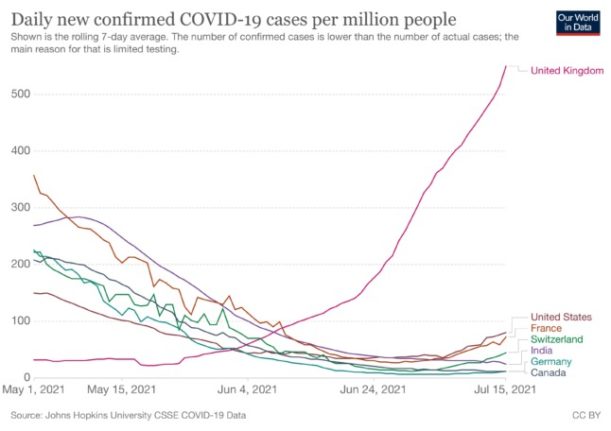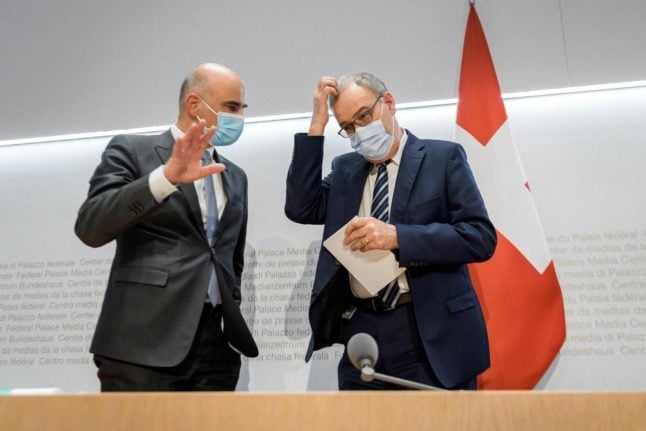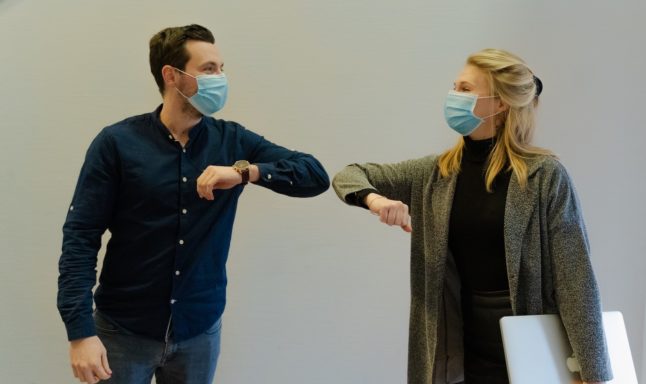On Friday June 16th, the Federal Office of Public Health (FOPH) has reported 619 new cases. That’s four times as many as a month ago, when the rates were steadily declining.
This situation prompted Le Matin newspaper to say that “the rise in Covid-19 cases appears to be just as worrying as the rising waters”, a reference to the recent floods in Switzerland.
The 20 to 29-years-olds are most affected by the new wave of contaminations. The fact that this age group has been hardest hit is perhaps not surprising, considering they have some of the lowest rates of vaccination.
People over 60, however, are the least impacted by the disease; vaccination rate within this group is 80 percent, according to FOPH.
On the other hand, death and hospitalisation rates remain low despite the sharp rise in infections.
In international comparison, however, Switzerland’s rate is still relatively low, especially compared to the UK.

What is the cause of this increase?
Among the primary reasons are unvaccinated Swiss tourists returning from holidays in Spain and Greece, where the number of cases is climbing.
As a result, the number of infections detected in Zurich alone has more than tripled in the past two weeks.
READ MORE: Returning tourists fuel Zurich’s Covid case spike
The Delta variant, which is now dominant in much of the world, including Switzerland, is the main culprit, health officials say, as it is more contagious than previous virus mutations.
READ MORE: Delta variant responsible for nearly 80 percent of new cases in Switzerland
At the same time, the rate of vaccinations has slowed down in Switzerland, even though health officials have repeatedly said that inoculation is the only hope of curtailing the spread of this variant, as the two vaccines administered in Switzerland — Pfizer and Moderna — are believed to be effective against it.
The virus is spreading mostly to those who are not vaccinated and, to a lesser degree, to people who have only had one shot of the vaccine, according to epidemiologist Volker Thiel.
What are health authorities doing to counter the damage?
So far, the government is not doing much in the way of damage control, aside from urging more people to get immunised.
It has not said whether it is planning to re-implement any of the measures lifted on June 26th, or whether the worsening of the epidemiological situation is expected to affect the rollout of the final phase of the three-phase strategy developed by the Federal Council, which is scheduled for the end of July or the beginning of August.
This calls for the end to all social and economic restrictions, as well as the lifting of other remaining measures, such as the mask requirement.



 Please whitelist us to continue reading.
Please whitelist us to continue reading.
Member comments